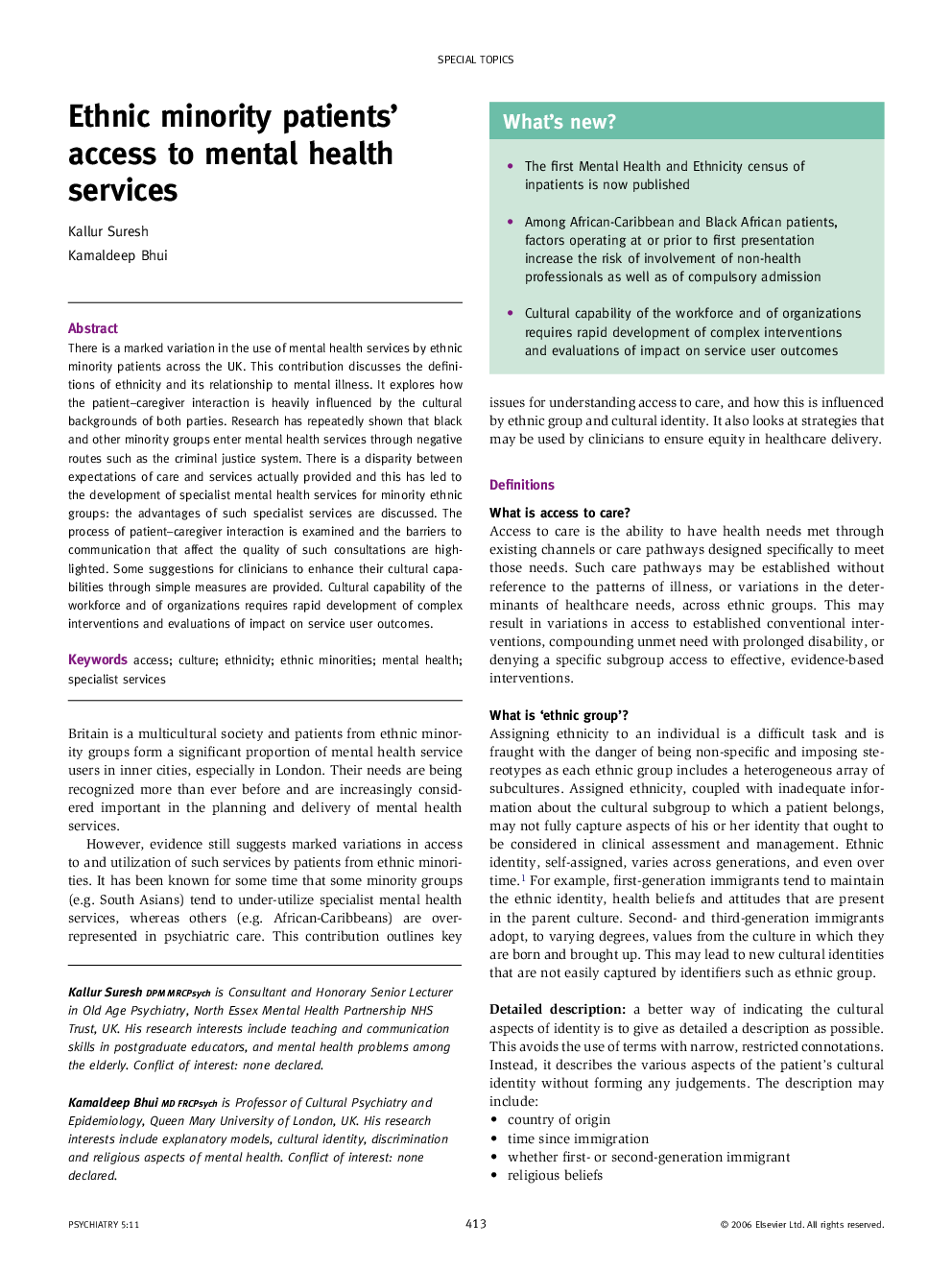| کد مقاله | کد نشریه | سال انتشار | مقاله انگلیسی | نسخه تمام متن |
|---|---|---|---|---|
| 4190281 | 1278167 | 2006 | 4 صفحه PDF | دانلود رایگان |

There is a marked variation in the use of mental health services by ethnic minority patients across the UK. This contribution discusses the definitions of ethnicity and its relationship to mental illness. It explores how the patient–caregiver interaction is heavily influenced by the cultural backgrounds of both parties. Research has repeatedly shown that black and other minority groups enter mental health services through negative routes such as the criminal justice system. There is a disparity between expectations of care and services actually provided and this has led to the development of specialist mental health services for minority ethnic groups: the advantages of such specialist services are discussed. The process of patient–caregiver interaction is examined and the barriers to communication that affect the quality of such consultations are highlighted. Some suggestions for clinicians to enhance their cultural capabilities through simple measures are provided. Cultural capability of the workforce and of organizations requires rapid development of complex interventions and evaluations of impact on service user outcomes.
Journal: Psychiatry - Volume 5, Issue 11, November 2006, Pages 413–416